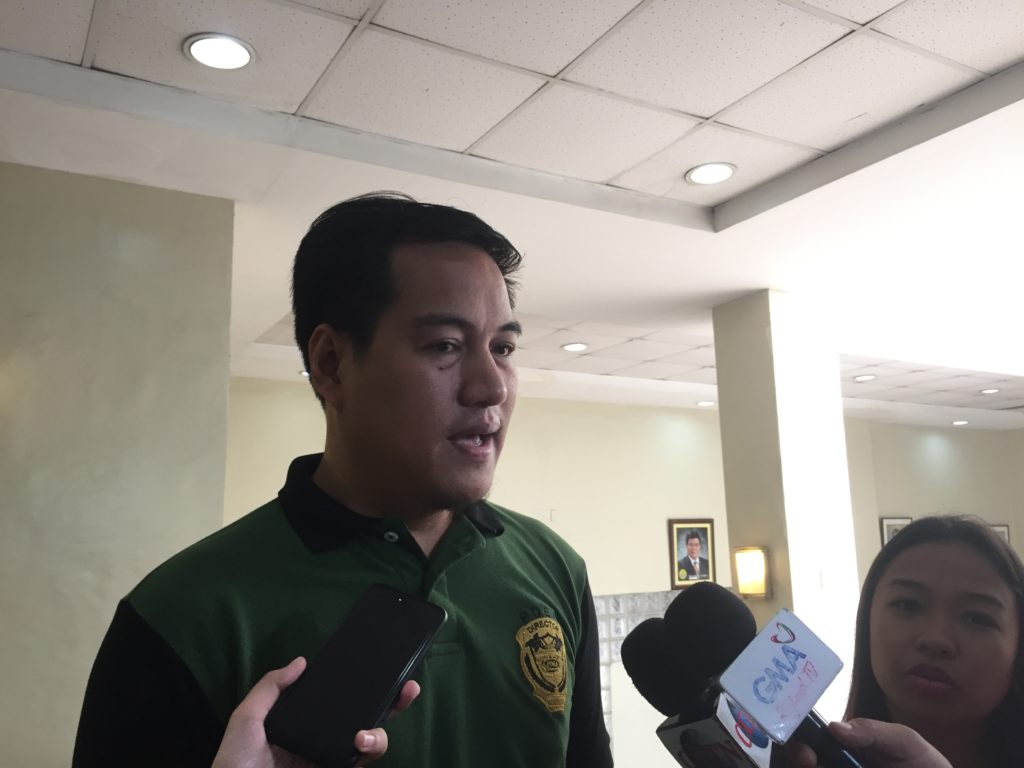
Director Wardley Getalla of the Philippine Drug Enforcement Agency in Central Visayas (PDEA-7) said that they are willing to release an inventory of all confiscated drugs in their operations to the Cebu City Council after careful study of their legal team. | Delta Letigio
CEBU CITY, Philippines — The Philippine Drug Enforcement Agency in Central Visayas (PDEA-7) will need to consult its legal team before it could decide on the request of the Cebu City Council for the agency to release the inventory of all illegal drugs confiscated in operations in the last five years.
PDEA-7 director Wardley Getalla said these records are often “classified” information and they might violate certain guidelines if they reveal the inventory publicly.
Getalla issued this statement after his office received the resolution passed by the city council on Tuesday, September 24, 2019, which asked PDEA-7 to send the council an inventory report of all the drugs that it has seized in the last five year.
“We will ask our legal team kung pwede ba natin ipakita sa ating City Council at sa anong forum siya pwede ipakita. (We will ask our legal team if we can show the City Council our inventory and in what forum we can present this),” he said.
The council took this move after PDEA Director General Aaron Aquino admitted in a Senate hearing that there are about 53 “ninja cops” involved in the recycling of seized drugs.
Read more: PDEA chief tags 53 active ‘ninja cops’
Getalla yesterday assured the City Council that they go through the proper process in the turnover and storage of seized illegal drugs confiscated.
He said that one of the challenges in destroying the illegal substances is the time it takes for the courts to release an order to destroy the drugs. Without this order, PDEA cannot unilaterally destroy the evidences, he said.
The culprit for the delay is the waiting time for cases to finish hearing in court, which further delays the order to destroy the evidences, he added.
The PDEA-7 also destroy the drugs in bulk because these must be destroyed through an incinerator, which PDEA-7 does not have easy access to.
Lawyer Clarence Paul Oaminal, the former undersecretary of the Dangerous Drug Board, however, said that the law provides that once the presiding judge has conducted an ocular inspection on the drug evidence, the court must order the destruction of these illegal drugs within 24 hours after the inspection.
In case the judge has not ordered the drugs’ destruction within 24 hours, the police or PDEA must file a motion to destroy the substances in order to hasten the destruction, Oaminal added.
Getalla said they have gone to court for approval to destroy seized drugs.
For huge hauls involving bigger amounts of illegal drugs, or those that were at least one kilo shabu, Getalla said PDEA-7 had often filed for the motion to destroy the substances because the storage of PDEA-7 could not hold unto huge bulks of evidences for a long time.
The last bulk destruction of PDEA-7 was conducted on July 25, 2017. There has been no bulk destruction of illegal drugs ever since.
The director said they are now planning to conduct another destruction of seized drugs in the “next few months.” There are now facilitating the turn over of remaining drugs from the Police Regional Office in Central Visayas (PRO-7) crime laboratory that have been cleared for destruction, he added.
“May sinusunod tayo ang chain of custody. Dapat nakarecord kung sino ang nagconfiscate noon, ang pangalan nya, date, at signature bago ituturn over. (We follow a chain of custody. It should be recorded who the confiscating enforcer was, the date of the confiscation, and his signature prior to turnover),” said Getalla.
Getalla said he would want to hold the next bulk destruction in the presence of local authorities and the media so there will no longer be any doubt on the part of the public as to the whereabout of the confiscated illegal drugs.
Getalla said PDEA-7 is willing to face the City Council in an executive session to discuss ways to hasten the destruction of illegal drugs, as it would help not only the police but also other law enforcement agencies, and the court.